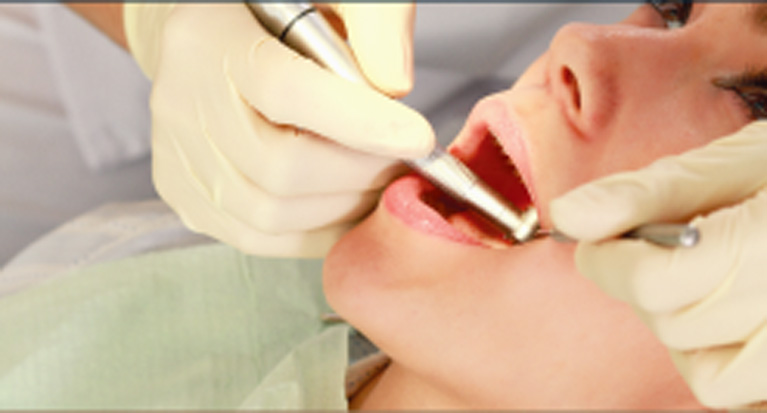
Oral health and hygiene are crucial at any age. However, getting young children and young adults to be proactive in their oral health can be challenging. Children of a certain age are trusted to brush and floss regularly—no less than twice daily—but some may neglect these tasks for various reasons.
Let’s explore the complications that arise from oral health neglect and what you can do to encourage your young adult or teen to reclaim their dental care and future well-being.
A Healthy Smile for Your Young Adult
Your teen should brush at least twice daily and floss once. Ideally, brushing and flossing should be done after every meal.
They should also visit their prosthodontist or dentist in Doylestown twice yearly for comprehensive exams and teeth cleanings.
These schedules are true for adolescents, teens, and adults of all ages. However, vigilance may be essential for children and teens, as they are more likely to indulge in snacks and beverages that are not healthy—for example, soft drinks, chips, and candy.
Why Young Adults Neglect Dental Health
Not all teens neglect their oral health, but those who do are at risk for serious complications, including widespread tooth decay, oral infections, and gum disease. The latter is especially concerning because it can lead to tooth loss and whole-body wellness issues.
Here are a few reasons some teens neglect their oral health.
Busy Lifestyle and Competing Priorities
Teenagers often have a lot on their plates. In addition to sports, social clubs, and school activities, there are studying, peer interactions, and more.
Because brushing and flossing are unsupervised at this age, young adults may neglect or even forget to always keep their teeth clean. Also, some young adults may speed through their oral health sessions to move on to other things, not spending enough time to clean their teeth and gums effectively.
Distractions and Angst
It’s easy to skip oral hygiene sessions due to forgetfulness. Additionally, skipping something your parents insist you do can feel like a small stand against authority, a slight rebellion, or a way to exert fledgling independence. Distractions can mean anything from video game play to friendship dramas.
Misconceptions about Dental Problems and Aging
Your teen may falsely believe they are too old for cavities and too young for tooth loss. They think they exist in a safe zone between these two realities. Unfortunately, you can develop cavities at any age and lose teeth.
Consequences of Delayed Treatment and Prevention
There are consequences to delaying dental treatment and not paying attention to your oral hygiene.
Tooth Decay
Tooth decay affects patients of all ages, and cavities are not always obvious—you can’t always see them when smiling in the mirror. They can develop behind and between teeth or at the back of the mouth.
If your teen skips oral hygiene sessions and dental visits, they may eventually present in the office with multiple cavities. Additionally, they can have more than one cavity on the same tooth, which compromises the integrity of this tooth going forward, even if it is cleaned and filled.
Tooth Infections
Deep cavities or tooth trauma can lead to root canal infections, especially with a lack of dental care and good oral hygiene. These infections can be excruciating and require root canal therapy, which typically involves the additional costs of crowning the tooth after treatment.
Bad Breath
Bad breath can be fleeting, but if your teen has plaque and tartar buildup, the odor may return hours after brushing and flossing. It’s not enough to rinse with mouthwash. Regular oral hygiene and dental care are the only solutions.
Tooth Stains
Plaque and tartar cover the teeth and lead to staining in addition to tooth decay. If your child develops tooth stains and discoloration, they’ll require professional teeth whitening in Doylestown to restore the youthful white. At the time of this writing, we are running a special on teeth whitening!
Gingivitis and Gum Disease
Gingivitis is the earliest stage of gum disease. In this stage, the condition is still reversible. Advanced gum disease and periodontitis are only treatable.
Gum disease causes tooth loss, but it has also been linked to severe conditions like heart and lung health complications.
Signs of gingivitis and gum disease include:
- Gum recession and irritation
- Loose and mobile teeth
- Bleeding gums when brushing and flossing
- Recurring bad breath
Encouraging Your Young Adult to Be Proactive in Their Oral Health
Teens can be rebellious but may respond to positive reinforcement and a reward system. For example, make oral care part of their allowance—clean your room, clean your teeth, take out the trash, etc.
You can also talk to them about the consequences and dispel some of their notions. For example, they are not too young for gum disease and tooth loss or too old for cavities!
The dentist or prosthodontist can also talk to them about the consequences of oral neglect. Additionally, if they see the dentist regularly, they may be more likely to keep their teeth clean—not wanting the dentist or hygienist to point out the neglect!
Are You Searching the Internet for a Prosthodontist Near Me?
A prosthodontist is a dentist with more schooling. A prosthodontist is a dental professional who emphasizes smile aesthetics, tooth replacement, alignment, smile rehabilitation, and tooth function. Call our office today to learn more about prosthodontics or to schedule your teen's next professional teeth cleaning and dental checkup at Dental Group Doylestown. f you're searching for a 'dentist near me,' our team is ready to assist you.
We’re happy to work with financing through CareCredit.





